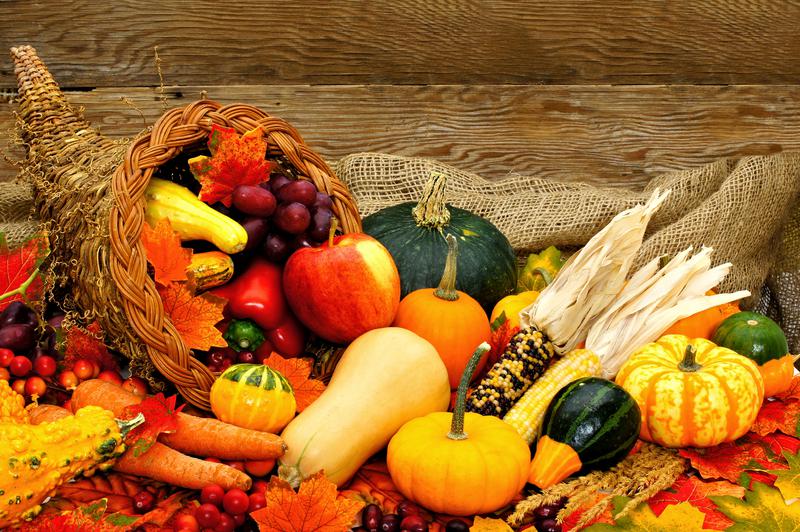
Fall provides an abundance of seasonal foods that not only taste delicious but also offer a wide range of health benefits. By embracing the natural harvest of autumn, you can nourish your body with nutrient-dense fruits and vegetables that support your immune system, improve heart health, and keep you feeling energized as the weather cools down. Here’s a look at some of the healthiest fall foods and why you should incorporate them into your diet.
Pumpkin: The nutritional superstar
No fall food list is complete without the iconic pumpkin. More than just a festive decoration, pumpkin is loaded with vitamins and antioxidants. Rich in beta-carotene, a powerful antioxidant that the body converts into vitamin A, pumpkin supports eye health and boosts the immune system. It's also high in fiber, which promotes digestive health and helps regulate blood sugar levels. Roast pumpkin for a savory side dish, blend it into soups or add pureed pumpkin to smoothies or baked goods for a nutrient boost.
Pumpkin seeds are packed with magnesium, zinc, and healthy fats and they make for a crunchy and heart-healthy snack. Roasted or added to salads, pumpkin seeds are a versatile way to increase nutrient intake.
Apples: Crisp and heart-healthy
Fall is apple season, and these crunchy fruits are as healthy as they are delicious. Apples are a great source of soluble fiber, particularly pectin, which helps lower cholesterol levels and regulate blood sugar. They’re also rich in antioxidants like vitamin C, which strengthens the immune system and fights off free radicals. Apples are a fall staple, whether enjoyed fresh, baked into dessert, or turned into homemade applesauce.
Sweet potatoes: Packed with nutrients
Sweet potatoes are a fall favorite that provide a rich source of vitamins, minerals, and fiber. Like pumpkin, they are high in beta-carotene, which supports skin health and enhances the immune system. Sweet potatoes also contain potassium, which helps regulate blood pressure, and their natural sweetness satisfies cravings for comfort foods without refined sugars.
Whether roasted, mashed, or added to soups and stews, sweet potatoes add vibrant color and natural sweetness to fall dishes, all while delivering a nutrient-dense punch.
Brussels sprouts: Cruciferous powerhouse
Brussels sprouts are a cruciferous vegetable that peak during the fall months. They are packed with vitamins C and K, essential for immune function and bone health. Brussels sprouts also contain compounds that have been linked to cancer prevention.
Roasting Brussels sprouts with a drizzle of olive oil and a sprinkle of salt brings out their natural sweetness and makes them an easy and delicious side dish for any fall meal.
Pears: Fiber-rich and refreshing
Pears are another fruit that reach their peak in the fall. They are an excellent source of dietary fiber, which supports digestive health and helps maintain steady blood sugar levels. Pears are also rich in vitamin C and copper, both of which act as antioxidants, protecting the body from oxidative stress.
Pears can be eaten fresh, baked into desserts, or poached for a refined, yet healthy treat. Their subtle sweetness and juicy texture make them a versatile addition to both savory and sweet dishes.
Squash: Versatile and nutrient-dense
Butternut, acorn, and spaghetti squash are fall vegetables that are packed with vitamins and minerals. These varieties of squash are particularly rich in vitamin A, fiber, and potassium, which are all important for heart health and maintaining healthy vision. Squash is also low in calories but high in flavor, making it a satisfying option for those looking to maintain a healthy weight.
Roasting squash brings out its natural sweetness and enhances its creamy texture, making it perfect for soups, salads, or side dishes.
Kale: The fall green giant
Kale is one of the most nutrient-dense vegetables available in the fall. It’s rich in vitamins A, C, and K, and contains powerful antioxidants that help fight inflammation and support the immune system. Kale is also high in fiber and has been linked to improved heart health and digestive function.
Kale can be massaged with olive oil for a raw salad, sautéed as a side dish, or added to soups and stews for an extra dose of greens.
Incorporating these seasonal foods into your meals not only celebrates the flavors of fall but also provides your body with the nutrients it needs to stay healthy during the colder months. Whether you're roasting root vegetables, making a batch of pumpkin soup, or enjoying a fresh apple, there are countless ways to embrace the season and fuel your body with delicious, wholesome foods.
Find more healthy eating from Northside Hospital Nutrition Services.

